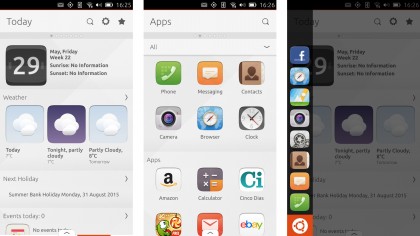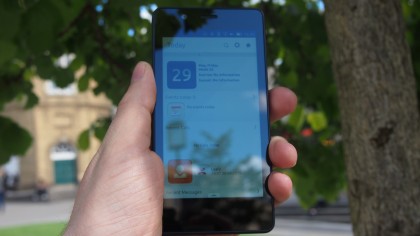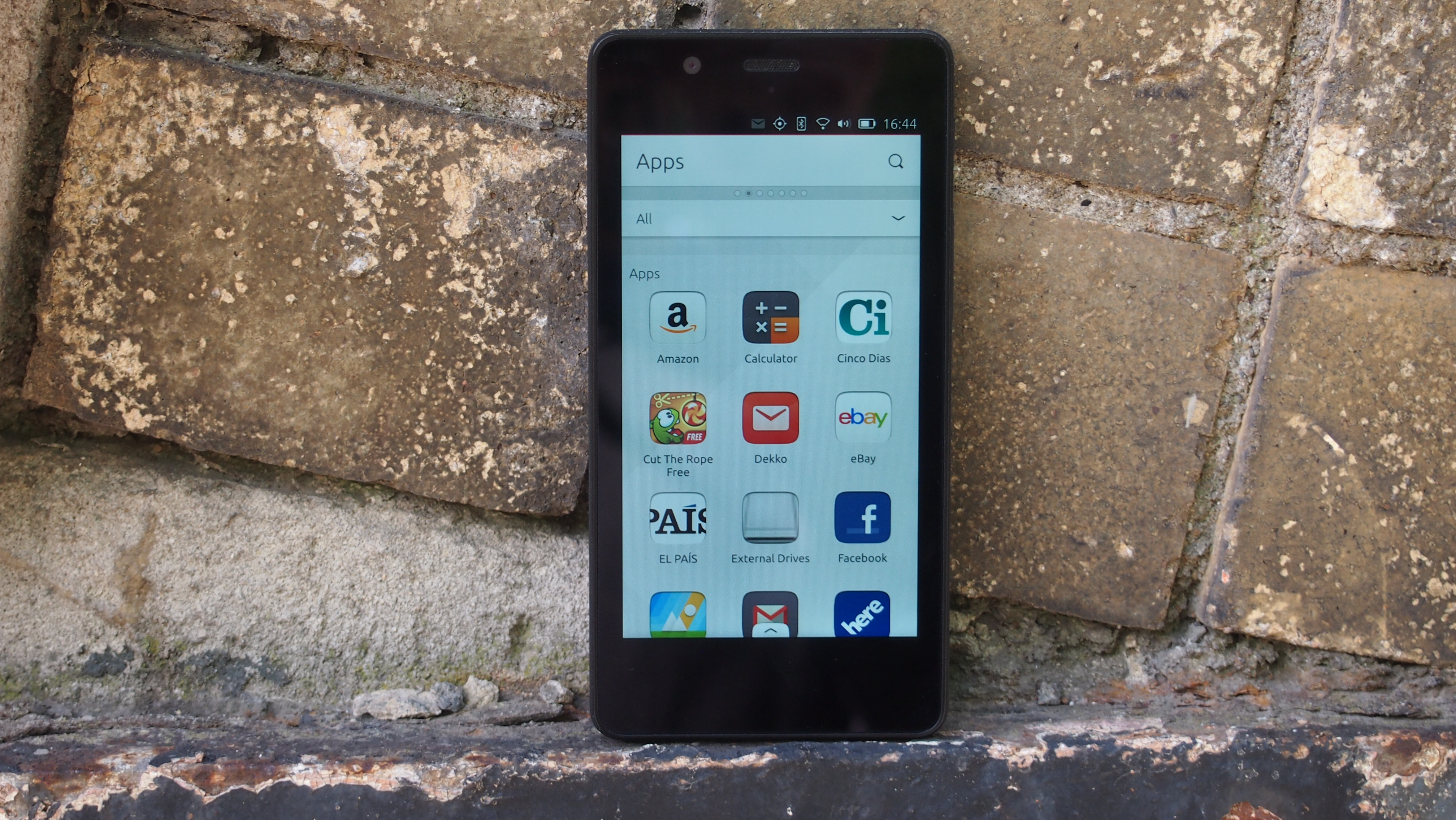Why you can trust TechRadar
Ubuntu Phone
The biggest feature of the otherwise unremarkable BQ Aquaris E45 Ubuntu Edition is the fact that it is the first commercially available handset running Ubuntu Phone – a version of the popular Linux distribution designed for mobile devices.
Canoncial, the company behind Ubuntu, has promised big things for Ubuntu Phone, including dispensing with the need for companies to make their own native apps. Instead, companies can quickly whip up a Scope – a sort of web-based app – to deliver their information and services to Ubuntu Phone customers.
On paper this makes a lot of sense, as mobile operating systems outside of the big two have long struggled to get app developers to port their apps to their platform, and if a potential customer finds their favourite app isn't supported, they're likely to stick with Android or iOS.

By making it quick, easy and (most importantly) cost effective to bring a "scoped" version of an app to Ubuntu Phone, Canonical hopes to have a big enough app ecosystem (that includes some of the biggest names) ready and waiting to convince customers to make the jump.
It's a sound plan in theory, and in some ways it has worked, with a number of big names signing up. However, in my time with the BQ Aquaris E45 Ubuntu Edition I felt that Scopes weren't quite the app alternatives Canoncial hopes they'll be.
For example the News scope handily aggregates headlines from a number of sources, such as the BBC and El Pais, but clicking on a headline simply takes you to a brief summary, followed by an "open" button that takes you to the new's source's website to read the story there.
It can feel like Scopes are little more than glorified RSS feeds. It doesn't help that images sometimes didn't display next to headlines, and although I'm sure Canonical will update and improve Scopes as Ubuntu Phone matures, it means the experience on the BQ Aquaris E45 Ubuntu Edition doesn't exactly convince you that it's a game changer.
Google has also been at the information aggregation game with Google Now, which brings information from various websites and apps into an easy to read layout, and at the moment I feel that Google's vision for aggregation is more coherent and appealing.
Native apps are also supported, with Canonical proudly boasting that big names such as Facebook, Twitter and Ebay are included, either pre-installed or available through the Ubuntu Store.
There are some noticeable exceptions, but I've been told that new official apps – and ones created by third party developers – will fill in these gaps. For example while there is no official Spotify app, you can still get Spotify on the BQ Aquaris E45 Ubuntu Edition using a third party app that uses Spotify's API. Not an ideal solution, but it works.
However this also makes it feel like the BQ Aquaris E45 Ubuntu Edition has been released not for the casual user who wants a new smartphone, but for developers in a bid to get more people to create Ubuntu Phone apps.
In the future, Canonical also wants programs that work on the desktop version of Ubuntu to work on Ubuntu Phone – much like Microsoft's vision of universal apps for Windows 10 devices.
The hope is that one day you can hook your Ubuntu Phone up to a monitor and use it as a full-blown Ubuntu computer, but it admits this won't happen for at least a year – not much use for BQ Aquaris E45 Ubuntu Edition owners today. Also, let's face it, this is a feature that will have little appeal beyond a rather niche community.
Low price
The BQ Aquaris E45 Ubuntu Edition costs €169.90 (around £127, US$194, AU$249). The relatively low price of the handset is certainly a blessing, and it means if you've been waiting for an Ubuntu Phone to launch (and there are some out there who have), then you're not faced with a high entry price.
It also means if you're looking for a smartphone that does much of the basics without wanting to pay flagship prices, then you might be tempted by the BQ Aquaris E45 Ubuntu Edition.
The curse, however, is that the market at this price point has become extremely competitive – just take a look at our run down of the top 10 budget handsets to see how good these devices have become.

There's a large number of Android phones from established brands vying for our attention, and not only do these budget Android handsets offer the same – and sometimes even more – features as the BQ Aquaris E45 Ubuntu Edition, they also benefit from the extremely well-established Android ecosystem.
This means that any app you can get on an expensive flagship Android device should be available on the much cheaper handsets as well – and this is something that the BQ Aquaris E45 Ubuntu Edition, or any Ubuntu Phone for the time being, simply cannot offer.
Microsoft has also been pushing budget Windows Phones such as the Nokia Lumia 530 and the Nokia Lumia 735, and although they don't enjoy quite the gamut of apps that Android devices do, they're still going to put up a decent fight against the fledgling BQ Aquaris E45 Ubuntu Edition.
Two SIMs are better than one
One thing that the BQ Aquaris E45 Ubuntu Edition boasts over most budget smartphones is that it can wield dual SIM cards.
This might usually reside quite low on the list of people's most wanted features (probably somewhere just above novelty ringtones), but it's pretty handy if you have a work phone and a personal phone, or if you use a second SIM card to make international calls. It means you can switch between SIMs (and therefore networks and contracts) without having to carry around two phones.
It works well enough, though it again gives the feeling that the BQ Aquaris E45 Ubuntu Edition isn't aimed at regular customers.

Matt is TechRadar's Managing Editor for Core Tech, looking after computing and mobile technology. Having written for a number of publications such as PC Plus, PC Format, T3 and Linux Format, there's no aspect of technology that Matt isn't passionate about, especially computing and PC gaming. He’s personally reviewed and used most of the laptops in our best laptops guide - and since joining TechRadar in 2014, he's reviewed over 250 laptops and computing accessories personally.
